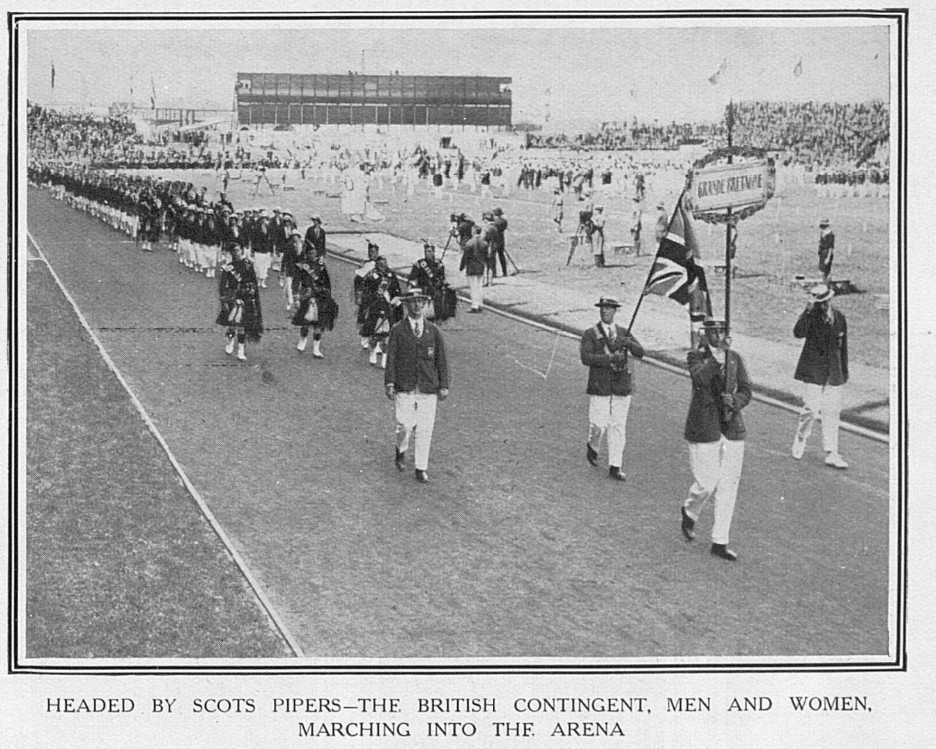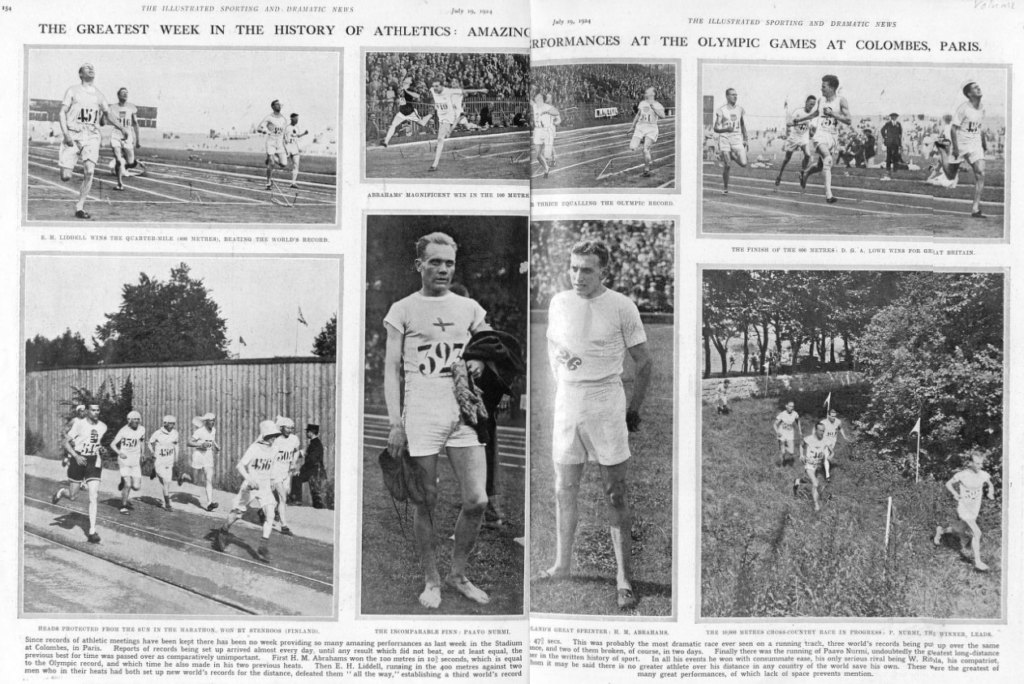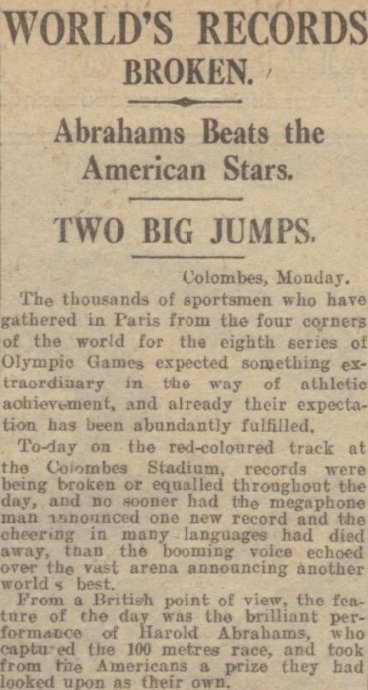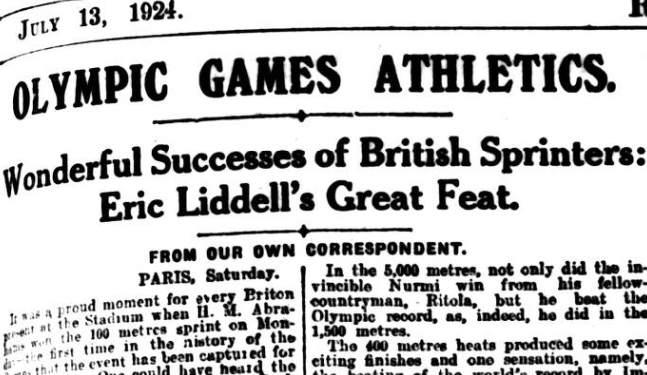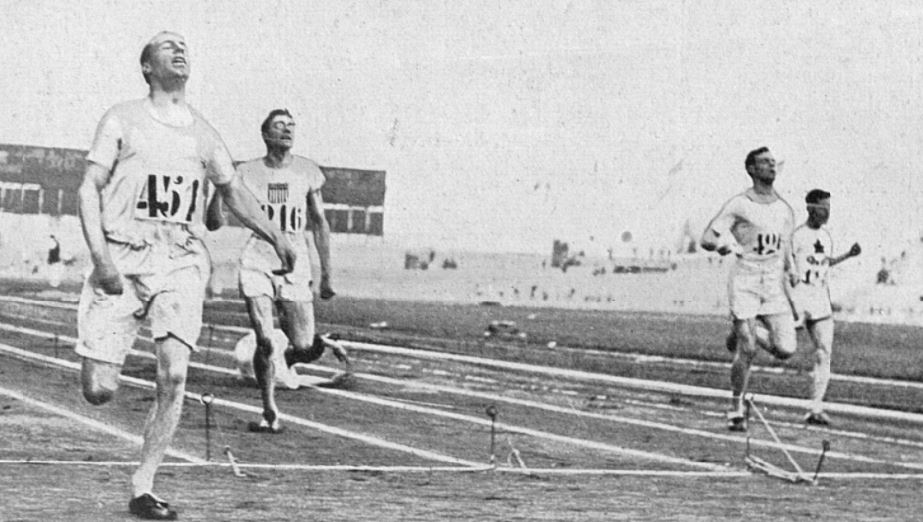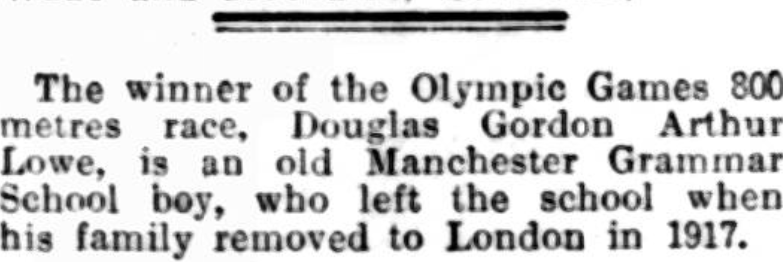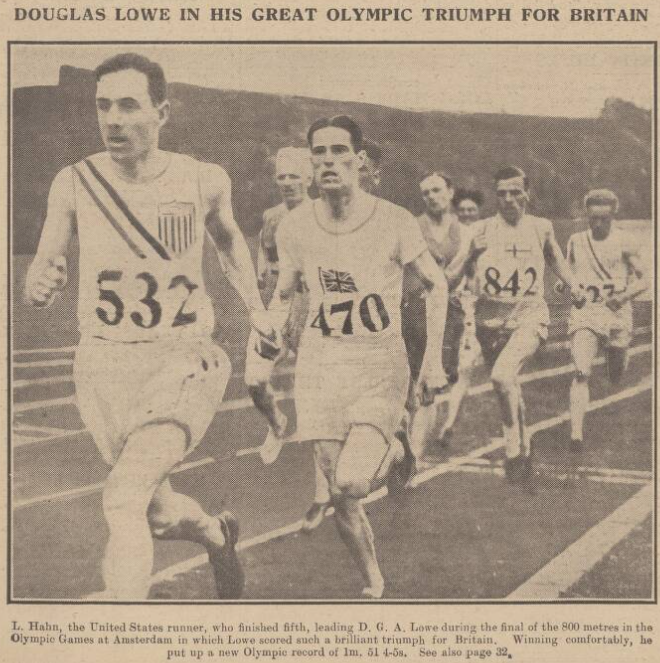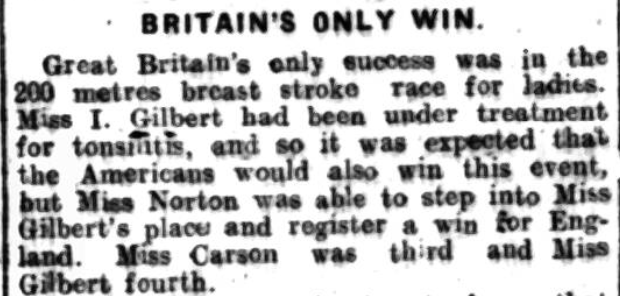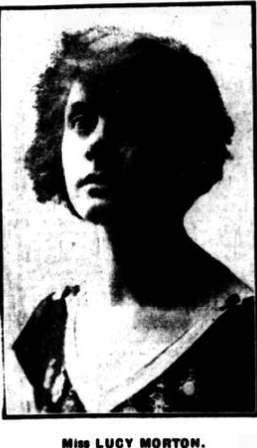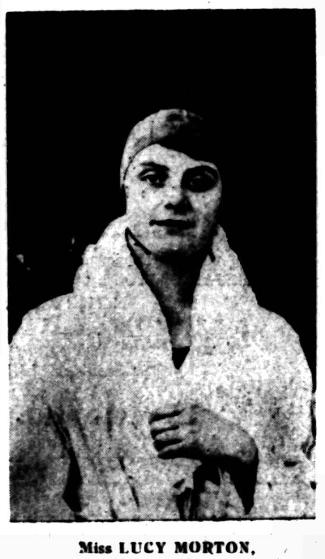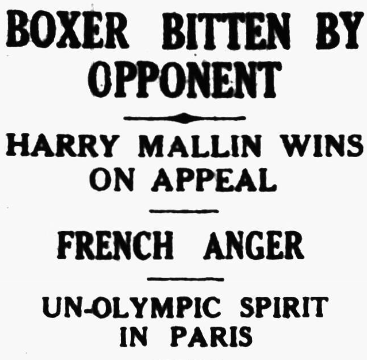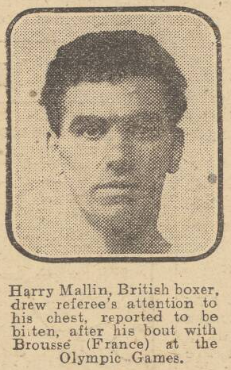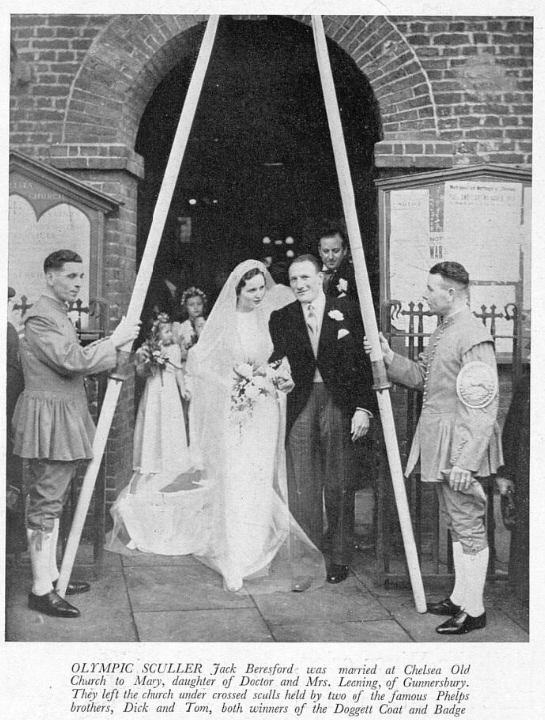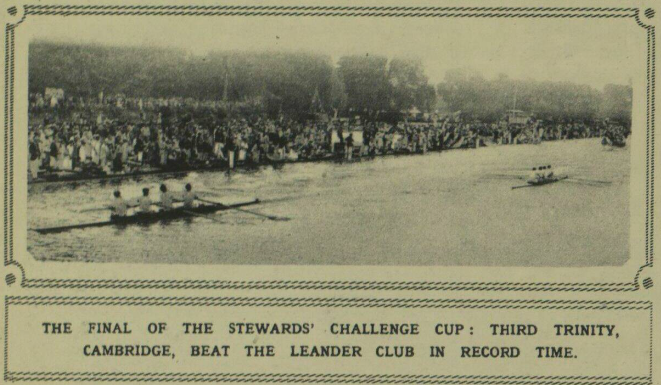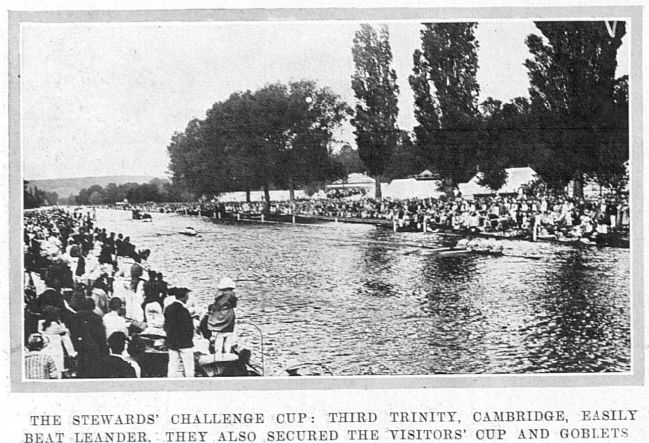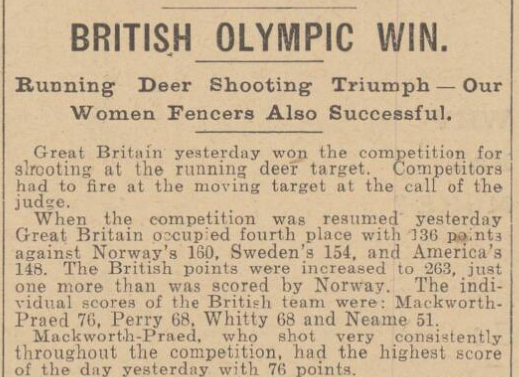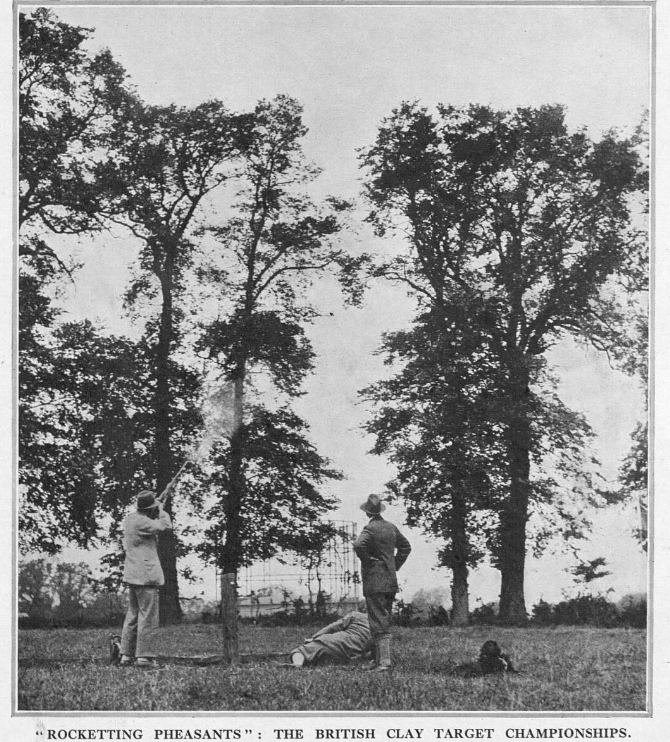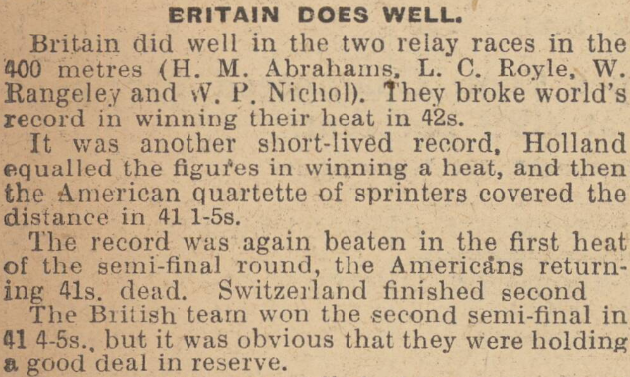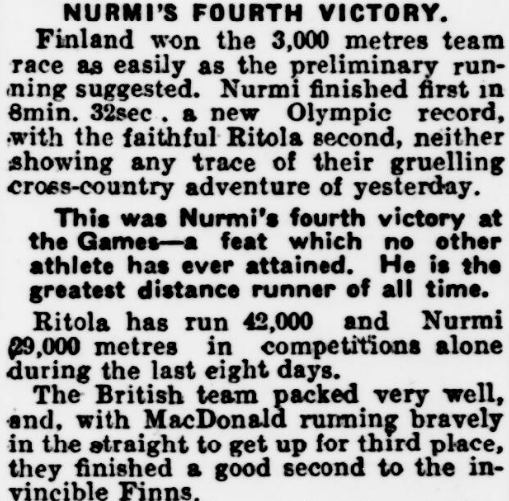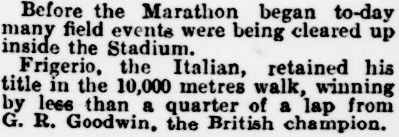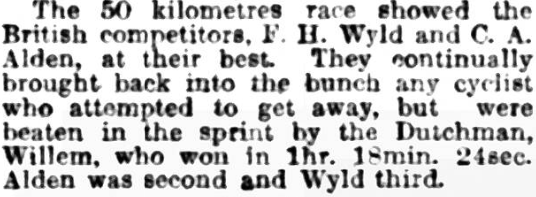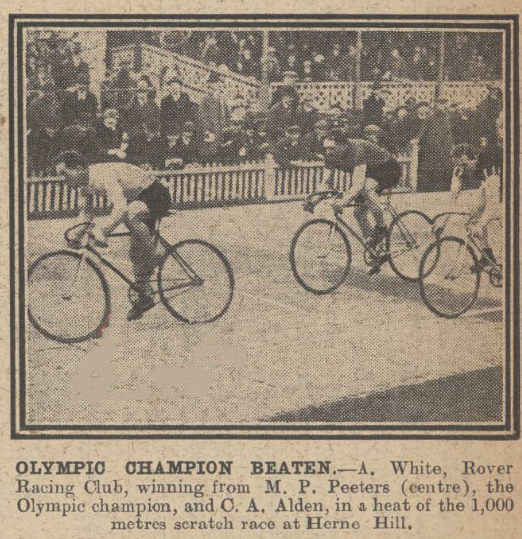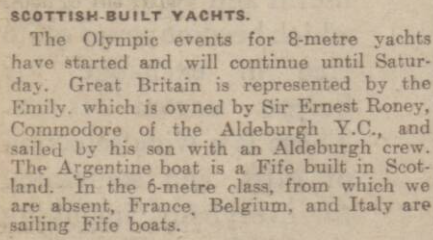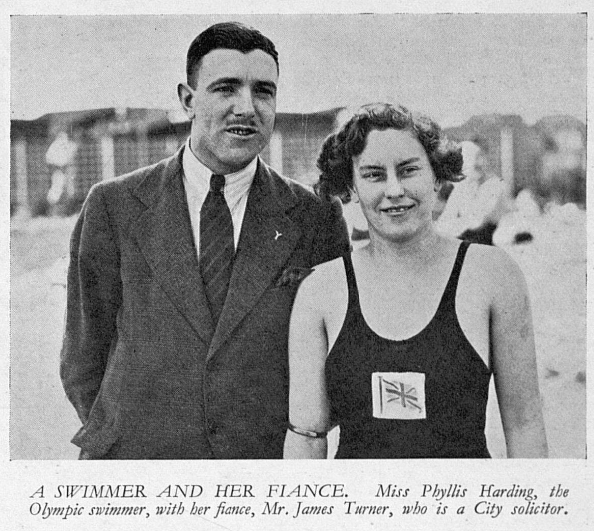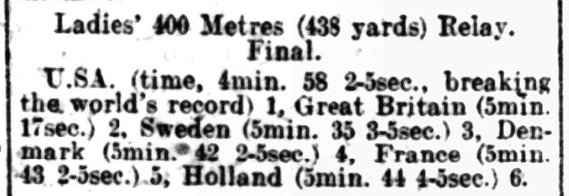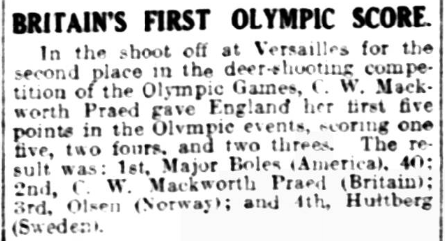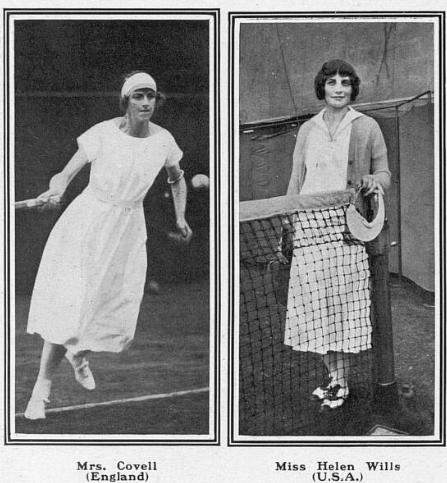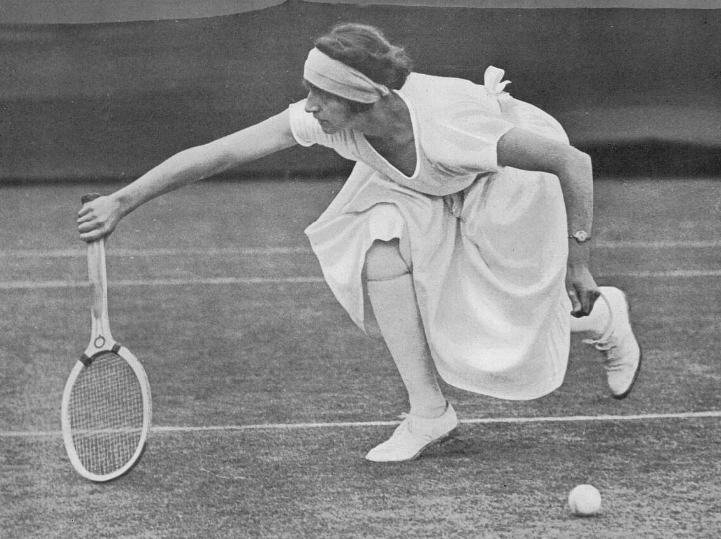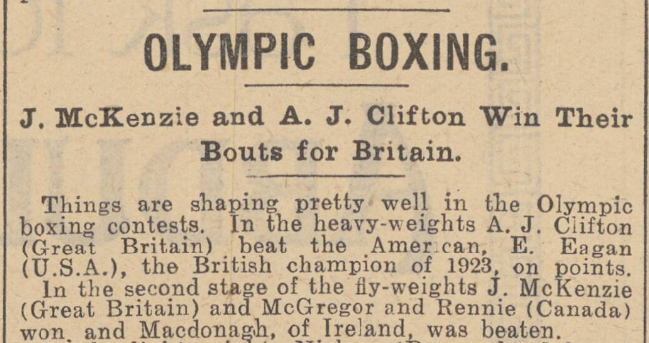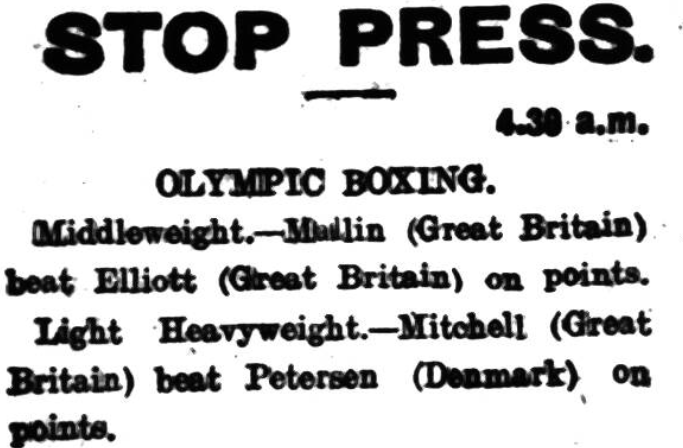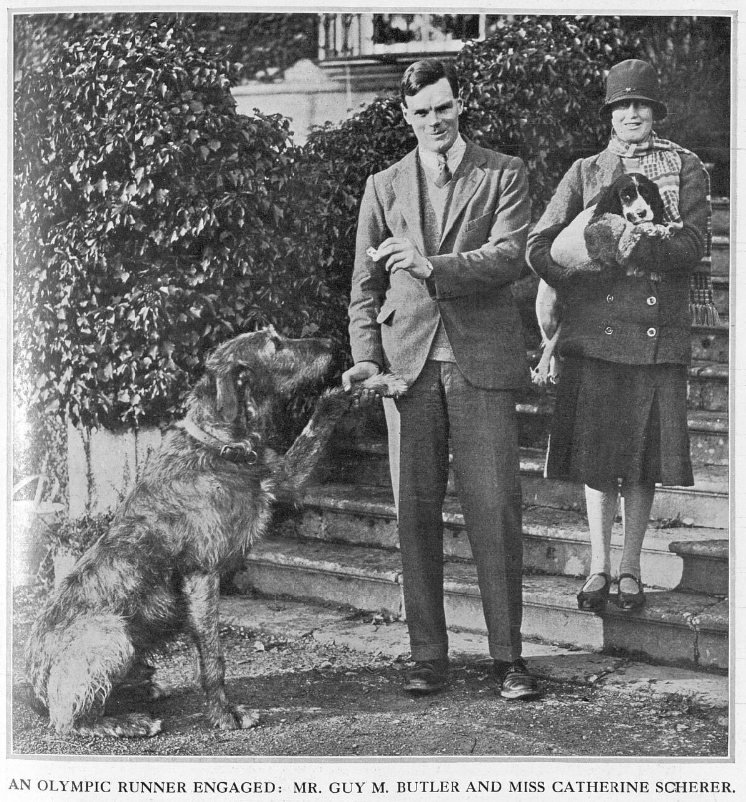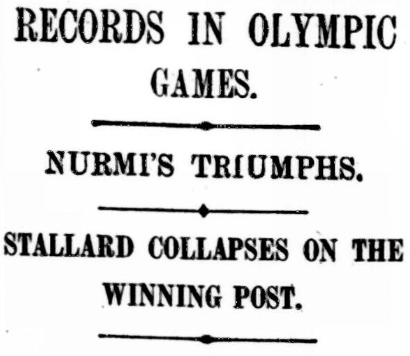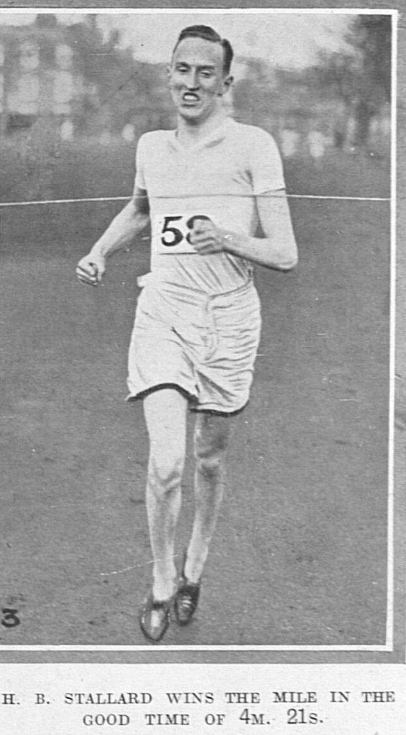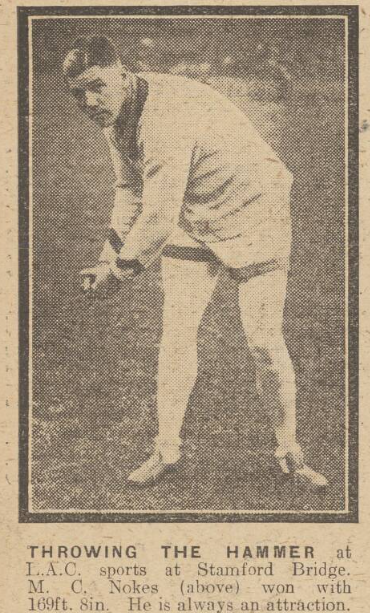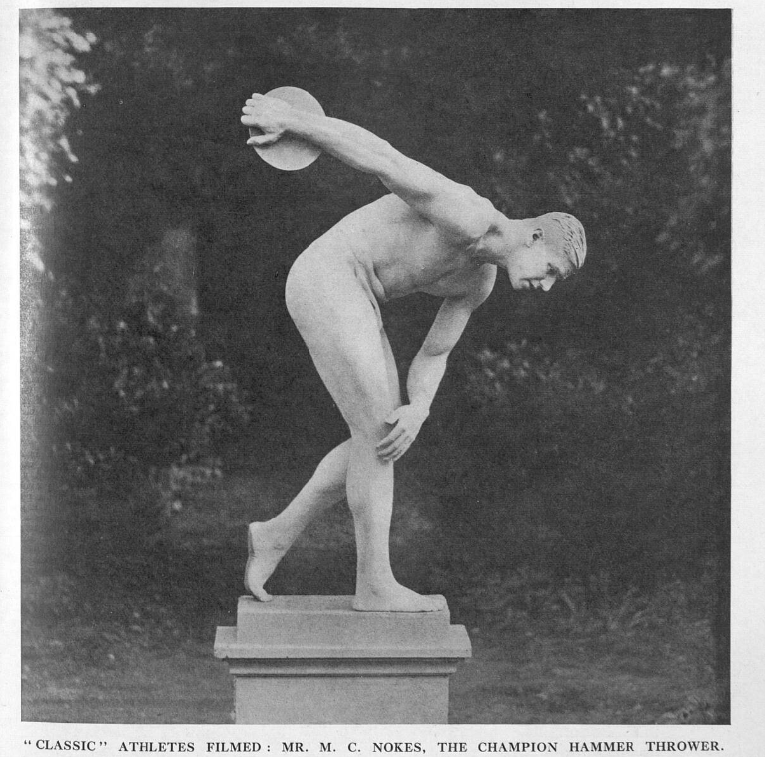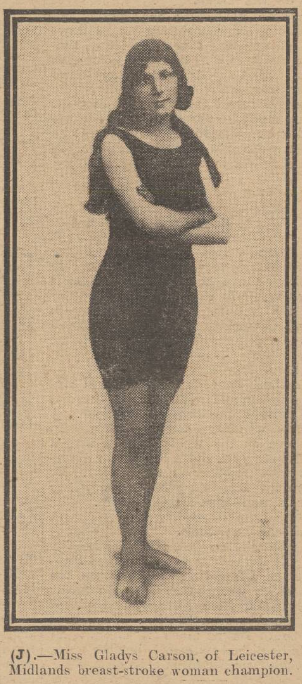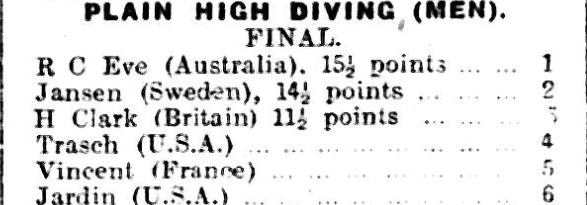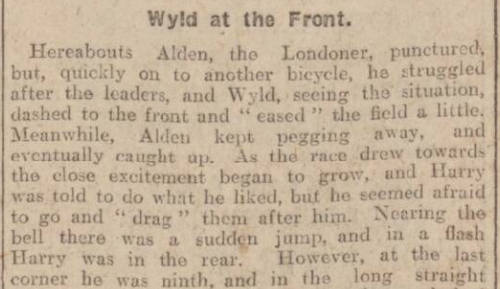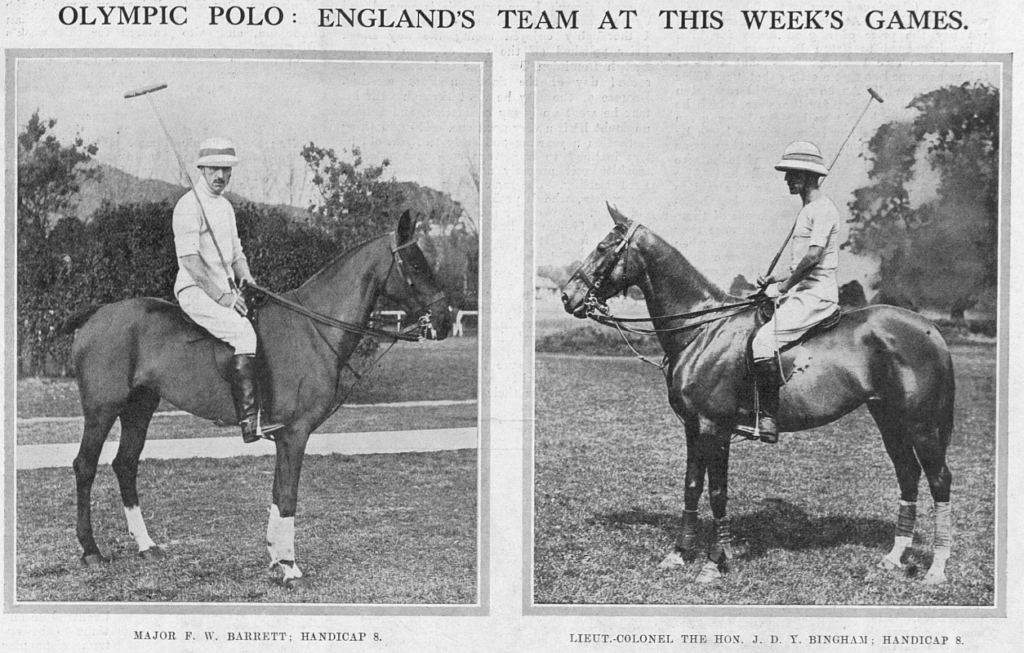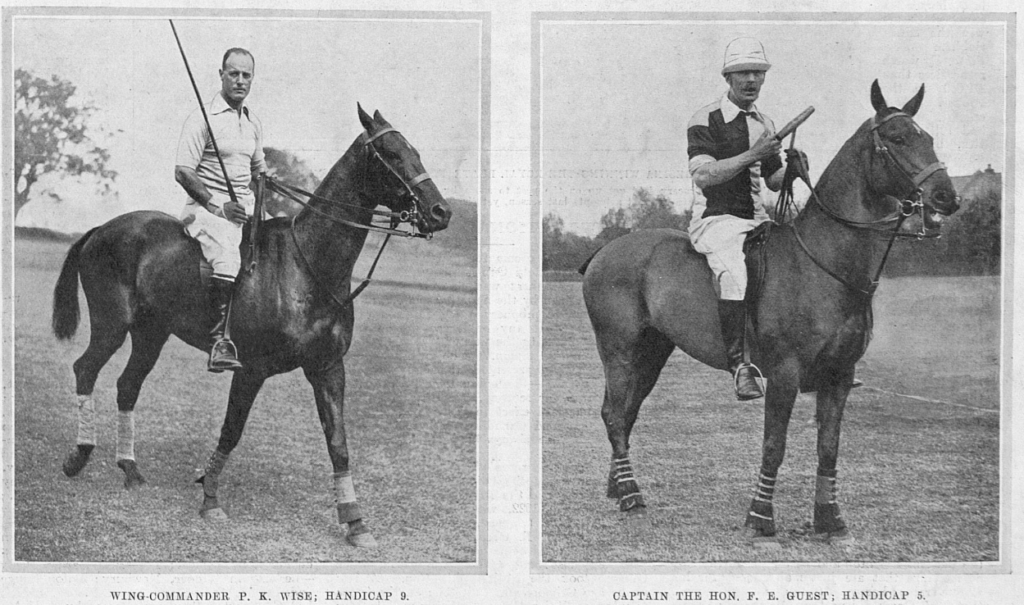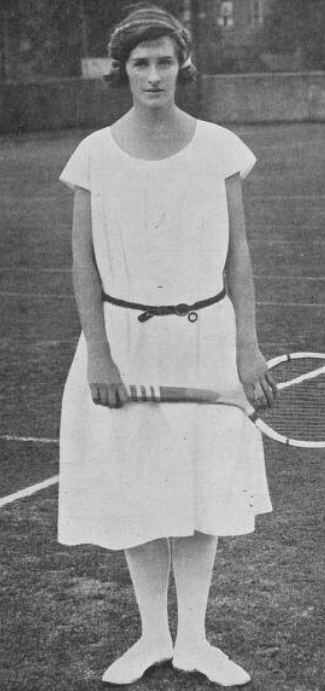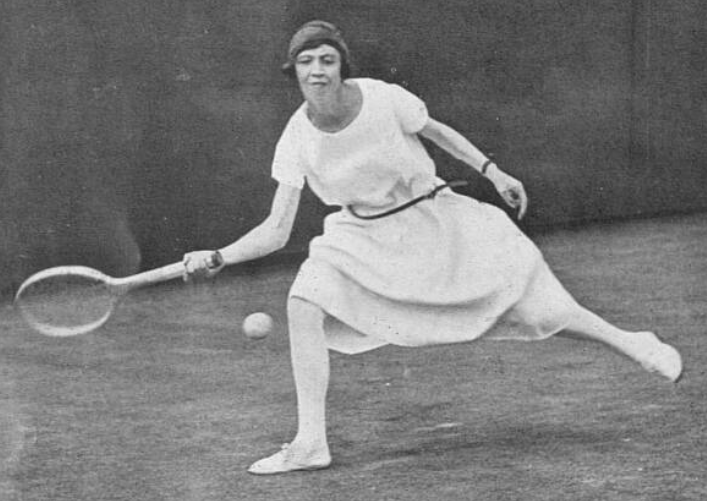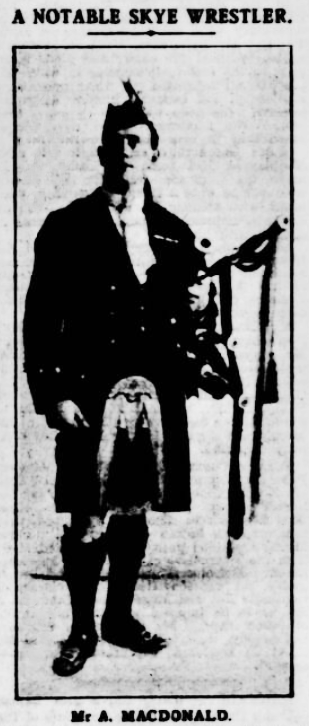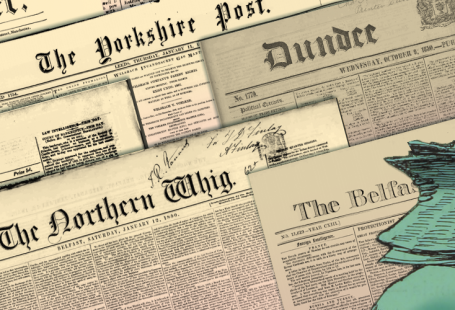As the 2024 Paris Olympics begin, we at the British Newspaper Archive could not help but look back at the 1924 Paris Olympics, with the same city playing host to the summer Olympic Games exactly one hundred years ago. Paris had also hosted the Olympics in 1900, and so this year will be the third time that the city hosts the iconic sporting tournament.
And the 1924 Paris Olympics would prove an iconic one for Britain, with gold medal wins by sprinters Harold Abrahams and Eric Liddell going on to inspire classic film Chariots of Fire. You can read more about their wins here. But Abrahams and Liddell were not the only British competitors to win gold at the 1924 Paris Olympics; seven other gold medals were awarded to athletes from Britain, alongside 13 silver medals and 12 bronze medals, with Britain placing fourth in the overall medal tally.
In this special blog, using newspapers from our Archive, we will celebrate every single British medal winner from the 1924 Paris Olympics. We will look at how their successes were reported on by the contemporary press, all the while making use of our special sporting titles. Be sure to consult our Archive for more on these incredible sporting men and women.
Register now and explore the Archive
Gold Medal Winners at the 1924 Paris Olympics
1. Harold Abrahams – Gold – Athletics, Men’s 100 m – 7 July 1924
One of the more famous wins from the 1924 Paris Olympics was that of Harold Abrahams. His success was celebrated by the Leeds Mercury the day after his victory in the 100 metres race with the headline ‘Abrahams Beats the American Stars.’
The piece focused on Abrahams’s defeat of the American sprinters, as he took from them ‘a prize they had looked upon as their own.’ After a close run semi-final, Harold Abrahams ‘forged ahead, and seemed to gain half-an-inch at each stride from the half-way mark.’
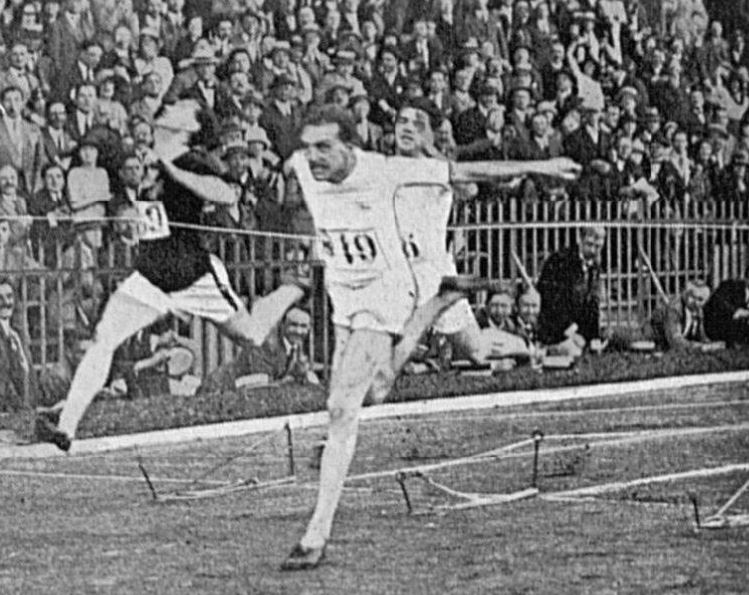
2. Eric Liddell – Gold – Athletics, Men’s 400 m – 11 July 1924
The other protagonist of Chariots of Fire is of course Eric Liddell, who took gold in the men’s 400m on 11 July 1924. Following on from Harold Abrahams’s win, which was the first time that a British sprinter had won the 100 metres race, was Scotsman Eric Liddell’s performance. On 13 July 1924 Reynolds’s Newspaper celebrated his success, in what it dubbed to be a ‘great feat.’
Again against the odds, and on the ‘outside position,’ Liddell powered to victory, ‘romping home quite four yards ahead of Fitch, the American.’ Reynolds’s Newspaper commented how his ‘glorious triumph will be long remembered by those who were fortunate enough to see it,’ whilst reminding readers how he was supposed to also run the 100m race, but withdrew because ‘he had an objection to athletic sports being held on Sunday.’ Liddell would also win another a medal at the 1924 Paris Olympics, taking bronze in the men’s 200 metres.
3. Douglas Lowe – Gold – Athletics, Men’s 800 m – 7 July 1924
Remaining in the sphere of athletics, there was another gold medal winner for Britain at the 1924 Paris Olympics in the shape of Douglas Lowe. His win, on the same day as Harold Abrahams’s, garnered less attention. For example, a small paragraph in the Halifax Evening Courier on 11 July 1924 noted how ‘the winner of the Olympic Games 800 metres race, Douglas Gordon Arthur Lowe, is an old Manchester Grammar School boy, who left the school when his family removed to London in 1917.’
Lowe would go on to repeat his marvellous feat at the 1928 Olympic Games in Amsterdam. This win made the front page of the Daily Mirror, which reported how the athlete won ‘comfortably’ whilst putting ‘up a new Olympic record of 1m, 51 4-5s.’
4. Lucy Morton – Gold – Swimming, Women’s 200 m Breaststroke, 18 July 1924
The only British woman to win gold at the 1924 Paris Olympics was swimmer Lucy Morton, who took gold in the 200 metres breaststroke. This was all the more impressive as Lucy Morton stepped in to replace her unwell teammate Irene Gilbert, in what was the only gold medal win for Britain in the pool.
The Western Evening Herald on 23 July 1924 described how Lucy Morton’s win was ‘Great Britain’s only [swimming] success,’ reporting that ‘Miss I. Gilbert had been under treatment for tonsilitis, and so it was expected that the Americans would also win this event.’ However, ‘Miss Norton was able to step into Miss Gilbert’s place and register a win for England.’
Lucy Norton received a ‘great welcome’ upon her return to her home town of Blackpool, where ‘a crowd numbering over 10,000 people gave an enthuastic welcome’ to the victorious swimmer. The Yorkshire Post and Leeds Intelligencer on 23 July 1924 reported how she was welcomed at the Town Hall by the Mayor. Lucy Morton was apparently ‘quite overwhelmed by her wonderful reception,’ and quipped ‘I would rather swim than make a speech.’
5. Harry Mallin – Gold – Boxing, Men’s Middleweight, 20 July 1924
At the 1924 Paris Olympics two British boxers took home the gold: Harry Mallin and Harry Mitchell. The former’s win was not without controversary however, coverage of the bout making the front page of the Daily Herald on 21 July 1924 under the headline ‘Boxer Bitten by Opponent.’
Indeed, Londoner Mallin had initially been ‘defeated on points in his fight with Brousse, the Frenchman, in the Olympic Games middle-weight championship.’ However, Mallin subsequently appealed on the basis that he ‘had been bitten on the chest’ during the bout by the Frenchman, who was duly disqualified. The Daily Herald went on to describe Harry Mallin as ‘one of the finest amateur boxers in England,’ as he had been ‘middle-weight champion of this country for five years.’ Mallin had never been defeated previously, and had taken home the gold at the 1920 Olympics.
6. Harry Mitchell – Gold – Boxing, Men’s Light Heavyweight – 20 July 1924
Also winning a boxing gold for Britain was Devon born Harry Mitchell in the men’s light heavyweight category. However, the unsporting behaviour towards fellow British boxer Harry Mallin continued to dominate the headlines, in what the Blyth News labelled on 28 July 1928 as ‘disgraceful scenes.’ The writer explained how their ‘friends have come back from France heartily disgusted,’ although they noted how ‘we are happy to know that we won two titles – the middles and the light-heavy, through Harry Mitchell.’
7. Jack Beresford – Gold – Rowing, Men’s Single Sculls, 17 July 1924
Away from the boxing ring, Jack Beresford claimed one of two British golds for rowing. His success made the pages of national title the Daily Mirror, with the simple headline ‘Beresford Champion.’ The newspaper reported how ‘J. Beresford, jun., won the Olympic sculling race at Paris yesterday for Great Britain.’
8. Charles Eley, James MacNabb, Robert Morrison and Terrence Sanders – Gold – Rowing, Men’s Coxless Four – 17 July 1924
Also claiming rowing gold for Britain in 1924 were the quartet of Charles Eley, James MacNabb, Robert Morrison and Terrence Sanders in the men’s coxless four. The Surrey Mirror on 25 July 1924 dubbed them ‘the best four of the century,’ with three of the four crew members, who all rowed for Cambridge as the Third Trinity team, hailing from Surrey.
The Surrey Mirror described how they achieved ‘a magnificent victory on the Seine,’ relating how since their 1922 debut at Henley, the team had ‘not been beaten in any of the six races in which they have completed, and are adjudged by experts to be the best Four England has had for a century.’
Meanwhile, in the Olympic race, the British team faced France, Switzerland and Canada, the latter team being ‘a powerful lot.’ However, Eley, MacNabb, Morrison and Sanders ‘in the last few hundred yards…drew steadily away, and won by about a length and a quarter from the Canadians.’ The Surrey Mirror hailed the team’s ‘speed and smoothness,’ whilst highlighting how the ‘Canadians have never before been beaten in Canada or the United States.’
9. Cyril Mackworth-Praed, Philip Neame, Herbert Parry and Allen Whitty – Gold – Shooting – Men’s 100 m Team Running Deer, Double Shots – 3 July 1924
Our final British gold medal winners at the 1924 Paris Olympics were actually the first to claim victory for Britain. On 3 July 1924 Cyril Mackworth-Praed, Philip Neame, Herbert Parry and Allen Whitty took first place in the shooting event of the 100 metres team running deer, double shots.
The Daily Mirror on 4 July 1924 reported on the success, explaining how as part of the event, competitors were required ‘to fire at the moving target at the call of the judge.’ In the end, Britain snatched victory from Norway by just one point, with British competitor Cyril Mackworth-Praed, ‘who shot very consistently throughout the competition,’ claiming the highest individual score.
Silver Medal Winners at the 1924 Olympic Games
10. Harold Abrahams, Wilfred Nichol, Walter Rangeley, and Lancelot Royle – Silver – Athletics, Men’s 4 x 100 m relay – 13 July 1924
We move on now to detail the British silver medal winners at the 1924 Paris Olympics, with sprinter Harold Abrahams again being on the podium, alongside teammates Wilfred Nichol, Walter Rangeley, and Lancelot Royle. The Daily Mirror on 14 July 1924, under the subheading ‘Britain Does Well,’ describes how the quartet broke the record for the 4 x 100 metre relay with a time of just 42 seconds in their heat.
However, it was destined to be a ‘short-lived record,’ with the American team breaking the record in their own heat with the time of ’41 seconds dead.’ The British team saw success in the semi-final, the Daily Mirror reporting how they won the race in ’41 4-5s., but it was obvious they were holding a lot in reserve.’ The final was, therefore, set to be a thrilling one, with the Americans equalling ‘their new record time in winning the final, the British team filling second place, with Holland third.’
11. Herbert Johnston, Bertram MacDonald and George Webber – Silver – Athletics, Men’s 3000 m Team Race, 13 July 1924
One of the legends competing at the 1924 Paris Olympics was Finnish athlete Paavo Nurmi, who set 22 world records and won nine Olympic gold medals during the course of his middle and long-distance running career. It was not a surprise, then, that the Finnish team ‘won the 3,000 metres team race as easily as the preliminary run suggested,’ as reported by the London Daily Chronicle on 14 July 1924. Nurmi, of course, was first ‘in 8 min. 32 sec., a new Olympic record,’ this being his ‘fourth victory in the Games – a feat which no other athlete has ever attained.’
However, the British team of Herbert Johnston, Bertram MacDonald and George Webber ‘packed very well,’ with MacDonald in particular ‘running bravely in the straight to get up for third place.’ This meant that the British competitors ‘finished a good second to the invincible Finns.’
12. Gordon Goodwin – Silver – Athletics, Men’s 10 km Walk – 13 July 1924
In the same London Daily Chronicle article, news of another British silver medal was reported. This time the recipient was Gordon Goodwin, who lost out to the Italian competitor Ugo Frigerio in the 10,000 metres walk. The piece detailed how ‘Frigerio, the Italian, retained his title in the 10,000 metres walk, winning by less than a quarter of a lap from G.R. Goodwin, the British champion.’
13. Gladys Davis – Silver – Fencing, Women’s Foil, 4 July 1924
On 7 July 1924 the London Daily Chronicle featured another British Olympic success, this time printing a picture of silver medal winner Gladys Davis, who had taken the silver medal in the women’s foil. Indeed, the newspaper described how she had ‘done remarkably well for Great Britain in the Olympic Games Ladies’ Fencing.’
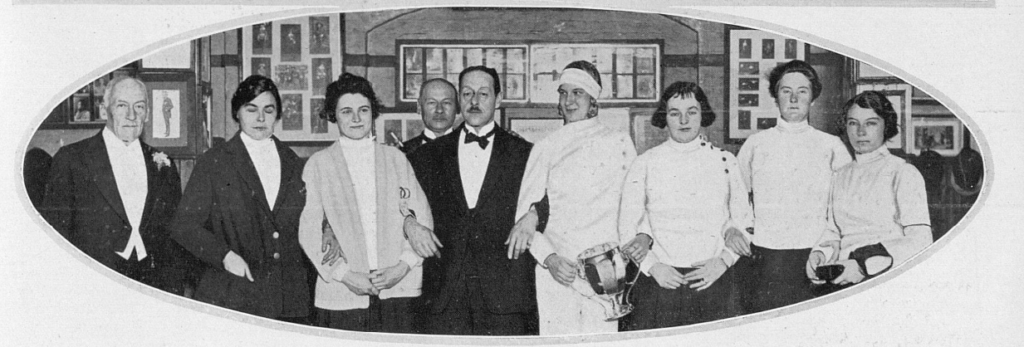
14. Cyril Alden – Silver – Cycling, Men’s 50 km – 27 July 1924
A sport we have not yet covered as part of the 1924 Paris Olympics is cycling. British cyclist Cyril Alden came in second in the 50 kilometres race, as reported by the Westminster Gazette on 28 July 1924. Alden raced alongside fellow Briton F.H. Wyld, with the Westminster Gazette noting how the cyclists appeared ‘at their best’ during the event.
Wyld and Alden ‘continually brought back into the bunch any cyclist who attempted to get away, but were beaten in the sprint by the Dutchman Willem, who won in 1hr. 18 min. 24 sec., Alden was second and and Wyld third.’
15. Harold Fowler, Edwin Jacob, Thomas Riggs, Walter Riggs and Ernest Roney – Silver – Sailing, 8 m class, 26 July 1924
Another sport we’ve not mentioned so far is sailing, in which the British crew of Harold Fowler, Edwin Jacob, Thomas Riggs, Walter Riggs and Ernest Roney won the silver medal in the eight metre class. Our specialist sailing title the Yacht Owner and Motor Boat Owner on 26 July 1924 noted the team’s early success in the Olympic competition, detailing how:
Sir Ernest Roney’s 8-metre yacht Emily won the eliminating race for her class at the Olympic regatta on Tuesday. Emily is the only British representative in the class, and was built this year from Fife’s design.
16. Phyllis Harding – Silver – Swimming, Women’s 100 m Backstroke, 20 July 1924
Staying around the water, we turn our attention to Phyllis Harding, whose silver medal winning performance in the Olympic 100 metre backstroke was celebrated by The Sportsman on 24 July 1924. Phyllis Harding’s performance was all the more remarkable given that she was only sixteen, and The Sportsman describes how she ‘gave a perfect exposition when she secured second place in the 100 metres in 1 min 27 2-5 sec., finishing exactly 4 1-6 sec. behind Miss Bauer of Chicago.’
And if Phyllis Harding’s performance wasn’t remarkable enough, the Western Evening Herald on 23 July 1924 reported how she had ‘only been a back-stroke swimmer during the last four months.’ During her swim, she and first placed competitor Sybil Bauer both broke world records, Bauer setting a brand new record in the process.
17. Florence Barker, Constance Jeans, Grace McKenzie and Iris Tanner – Silver – Swimming, Women’s 4 x 100 m Freestyle Relay, 18 July 1924
Britain’s women, as opposed to Britain’s men, saw more success in the pool when their 4 x 100m freestyle relay team of Florence Barker, Constance Jeans, Grace McKenzie and Iris Tanner took silver. The results of this race, in which the British team placed behind the world record breaking American quartet with a time of 5 minutes and 17 seconds, was reported in the pages of the Birmingham Daily Gazette.
18. Cyril Mackworth-Praed – Silver (x2) – Shooting, Men’s 100m Running Deer, Single and Double Shots, 30 June and 1 July 1924
We’re back to our crack shot Cyril Mackworth-Praed now, as the marksman added two individual silver medals to his team gold. Indeed, Mackworth-Praed was the first British athlete to secure points at the 1924 Paris Olympics. The Westminster Gazette marked this milestone on 1 July 1924 with the headline ‘Britain’s First Olympic Score,’ describing how:
In the shoot off at Versailles for the second place in the deer-shooting competition of the Olympic Games, C.W. Mackworth-Praed gave England her first five points in the Olympic events, scoring one five, two fours, and two threes.
The Birmingham Daily Gazette on the same day elaborated on the competition, explaining how ‘each of the contestants have ten shots at a moving target, firing at the command of the judge.’ American Major Boles took the gold, with Mackworth-Praed facing the Norwegian competitor in the ‘shoot for second place,’ as both the British and Norwegian shooters had finished on equal points.
19. Phyllis Covell and Kathleen McKane – Silver – Tennis, Women’s Doubles – 19 July 1924
Like Britain’s women’s swimming team, Britain’s women tennis players were left with the task of winning medals as their male counterparts failed to progress in the Olympic competition. Gold sadly wasn’t on the cards for British pair Phyllis Covell and Kathleen McKane, who faced the American pair of Hazel Wightman and Helen Wills in the final. McKane and Wills had previously faced off for the Wimbledon title, with Kathleen ‘Kitty’ McKane prevailing.
However, as the Hull Daily Mail on 21 July 1924 reported, the British pair played ‘much below their form, and troubled by nerves, they were beaten in straight sets, and thus the United States added another to its long list of Olympic victories.’
American tennis superstar Helen Wills would add another Olympic gold to her tally as she was victorious in the women’s singles. Meanwhile, Kathleen McKane, in ‘playing for third place…easily defeated Mme. Golding (France),’ as reported by the Daily Mirror, securing for herself an individual bronze medal.
20. James McKenzie – Silver – Boxing, Men’s Flyweight – 20 July 1924
Back to the boxing ring now for our final two British silver medals of the 1924 Paris Olympics. On 18 July 1924 the Daily Mirror outlined Scottish boxer James McKenzie’s progress, describing how he was victorious ‘in the second stage of the fly-weights.’
Belfast sporting paper Ireland’s Saturday Night on 26 July 1924 meanwhile lauded Britain for having ‘done exceedingly well’ in the Olympic boxing, with James McKenzie being the ‘runner-up’ in the flyweight category.
21. John Elliott – Silver – Boxing, Men’s Middleweight – 20 July 1924
Rounding off our silver medal winners of the 1924 Paris Olympics is boxer John Elliott. His bout with fellow Brit Harry Mullin made the ‘Stop Press‘ column of the Nottingham Journal on 21 July 1924, as it was reported how ‘Mullin (Great Britain) beat Elliott (Great Britain) on points.’
Bronze Medal Winners at the 1924 Paris Olympics
22. Guy Butler – Bronze – Athletics, Men’s 400 m – 11 July 1924
We’re back to the track now as we begin our run down of British bronze medal winners at the 1924 Paris Olympics. With ‘wonderful Liddell’ providing ‘Olympic Thrills’ with his victory in the 400 metres, fellow Briton Guy Butler came in third, as per the Sheffield Daily Telegraph. The newspaper notes how ‘Guy Butler, the old Light Blue, was third, being separated from the winner by Fitch, the American.’
23. H.B. Stallard – Bronze – Athletics, Men’s 1500 m – 11 July 1924
Butler’s fellow athlete H.B. Stallard hit the headlines for a different reason on 11 July 1924, as the Yorkshire Post and Leeds Intelligencer reported how he had collapsed ‘on the winning post.’ Stallard was taking part in the 1500 metres race against the famed Nurmi, and with three hundred yards to go, he ‘made his effort.’
H.B. Stallard managed to get past his next man, the Swiss competitor, and to ‘twenty yards behind Nurmi, who kept looking back.’ However, ‘right on the winning post which the Finn had passed Stallard’s legs failed him, and the Swiss went by.’ With a heroic effort, ‘the Englishman staggered on, and, just as in the 800 metres, crashed over on to the grass,’ all the while securing for himself the bronze medal.
24. Guy Butler, George Renwick, Richard Ripley and Edward Toms – Bronze – Athletics, Men’s 4 x 400 m Relay – 13 July 1924
Guy Butler added to his bronze medal tally with 4 x 400m relay teammates George Renwick, Richard Ripley and Edward Toms on 13 July 1924. The Daily Mirror on 14 July 1924 described the final of this event, which was won by the team from the United States, with Sweden coming in second.
25. Malcolm Nokes – Bronze – Athletics, Men’s Hammer Throw – 10 July 1924
Meanwhile Malcolm Nokes was the only British competitor to return with a medal for an athletic field sport, namely the bronze for the men’s hammer throw. The result was not without some controversy. Sport (Dublin) on 19 July 1924 described how ‘Olympic Sportsmanship’ induced the American competitor Matt McGrath to intervene on Malcolm Nokes’s behalf, with the judges’ result deemed to be wrong.
The Western Daily Press on 11 July 1924 elaborated, noting how ‘Nokes’s distance was first given as 48.74 metres,’ when it actually measured 48.875 metres, thus earning the ‘Achilles athlete‘ the bronze medal.
26. Gladys Carson – Bronze – Swimming, Women’s 200 m Breaststroke – 18 July 1924
Let’s get back to the pool now to look at Gladys Carson’s bronze medal winning turn, as she came in third place to overall winner and teammate Lucy Morton in the 200 metres breaststroke. Although Lucy Morton came first, Leicester native Gladys Carson’s name appeared first and foremost in the pages of her local newspapers.
For example, the Market Harborough Advertiser and Midland Mail reported how ‘Miss Gladys Carson, of Leicester, finished third in the final of the 200 metres breast stroke at Paris on Friday last,’ with no word of a mention of her teammate. Meanwhile, the Leicester Evening Mail on 19 July 1924 ran with the headline ‘Miss G. Carson Third,’ listing the full results of the race.
27. Harold Clarke – Bronze – Diving, Men’s Plain High Diving – 15 July 1924
It’s not quite fair to say that Britain’s men had no success in the pool, as diver Harold Clarke scooped the bronze medal in the men’s plain high diving event. The Sportsman set Clarke up for success as the paper reported the news that he had reached the final, observing how ‘he came out with the highest tally in the heats.’
However, Clarke’s 11 1/2 points were not enough to beat the Australian diver R.C. Eve, who received 15 1/2 points, nor were they enough to defeat the Swedish diver Jansen with his tally of 14 1/2 points, as per the Shields Daily News.
28. Harry Wyld – Bronze – Cycling, Men’s 50 km – 27 July 1924
We’ve already touched somewhat on cyclist Harry Wyld’s bronze medal winning turn in the 50 km race, as his teammate Cyril Alden took the silver medal. The Derby Daily Telegraph on 29 July 1924 provides an excellent blow-by-blow account of the race, which Harry Wyld led at times.
Towards the end, however, despite being told ‘to do what he liked,’ Wyld seemed ‘afraid to go…and in a flash [he] was in the rear.’ Now placed in ninth position, Wyld ‘seemed to drop from the clouds’ to claim ‘a good third.’ The article affectionately calls Wyld by his first name Harry, Harry Wyld being a local Derby man. Meanwhile, the newspaper relates how the exciting race was watched by some 35,000 spectators.
29. Frederick W. Barrett, Frederick Guest, Dennis Bingham and Percival Kinnear Wise – Bronze – Men’s Polo – 12 July 1924
We may be nearing the end of our list but we still have two different sporting pursuits up our sleeves – the first being polo. Despite a positive early showing, in which the British team beat Spain ‘by 10 goals to 3,’ the ‘British team outclassing their opponents from the beginning,’ as per the Westminster Gazette, Frederick W. Barrett, Frederick Guest, Dennis Bingham and Percival Kinnear Wise were not destined for overall victory.
On 10 July 1924 the Shields Daily News reported on ‘Great Britain’s polo defeat,’ as Argentina won by 9 goals to 3. However, The Bystander on 16 July 1924 offered its ‘warm congratulations’ to the Argentinian team, which it believed showed how polo was ‘steadily losing ground in England,’ but was ‘going strongly ahead in other parts of the world.’ The same piece admitted how ‘the British team was by no means the strongest that we could have put in the field, but exactly the same can be said of the Argentine and United States teams.’
The American team would beat Britain into third place.
30. Evelyn Colyer and Dorothy Shepherd-Barron – Bronze – Tennis, Women’s Doubles – 19 July 1924
Our penultimate British bronze medal winners from the 1924 Paris Olympics are duo Evelyn Colyer and Dorothy Shepherd-Barron, who came third in the women’s doubles event.
Under the heading ‘Lawn Tennis’ the Birmingham Daily Gazette on 21 July 1924 reported how ‘playing for third place in the ladies’ doubles, Mrs. Shepherd Barron and Miss Colyer defeated Mme. Billlout and Mlle. Bourgeois, 6-1, 6-2.’
31. Archie MacDonald – Bronze – Wrestling, Men’s Freestyle Heavyweight – 14 July 1924
Our final British medal winner from the 1924 Paris Olympics was Scotsman Archie MacDonald. We promised you another sport, and Archie MacDonald’s was wrestling. However, MacDonald’s performance was poorly reviewed by the London Daily Chronicle on 14 July 1924, as the newspaper reported how ‘Britain’s chances in the heavy-weight class of the Olympic catch-as-catch-can wrestling are disappearing, Macdonald (Gt. Britain) being beaten and Sangwin (Gt. Britain) having scratched.
‘Catch-as-catch-can’ is a style of wrestling in which all holds are allowed, and is more generally known as freestyle wrestling today. Meanwhile, despite missing out on gold, Archie MacDonald did not come away from the 1924 Paris Olympics empty handed, having won the bronze medal.
We hope you enjoyed our rundown of the 34 British medal winners from the 1924 Paris Olympics. How will Team GB get on at this year’s Parisian competition? If this blog has whetted your appetite for Olympic history, browse through our Archive’s extensive holdings to discover more about the history of both the Olympic and Paralympic Games.


